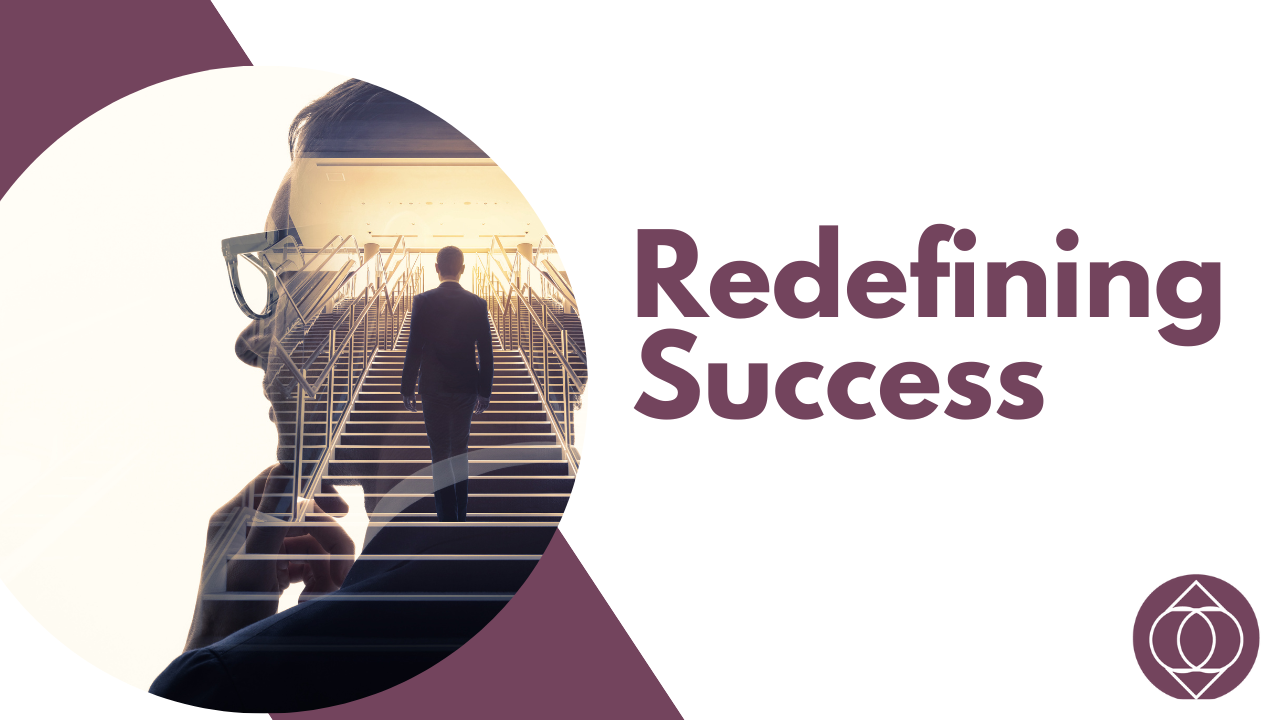Clarity Over Confusion: Navigating Your Existential Crisis and Money Emotions

You know how you've been contemplating your desires, feeling overwhelmed because you have so many different aspirations? Well, Mr/Madam President, what you're experiencing is known as an existential crisis.
But before you become frustrated with yourself, let me assure you that an existential crisis is not a bad thing. In fact, it can be a catalyst for positive change, both personally and professionally. Just look at Andrew Carnegie, who faced his own existential crisis when he decided to sell his company and invest the proceeds in schools and libraries. The results of his existential crisis are still impacting the world today.
When navigated wisely, an existential crisis becomes a time of reflection and transformation, an opportunity to embrace new possibilities. And during this transformative journey, having a trusted guide or mentor by your side can make all the difference. Don’t worry if you don’t have a guide, I’ll offer some guidance here and you can always join the free Presid...
From Film to Finance: The Making of a Financial Therapy CEO

Were you an overnight success? Business is rarely that simple. There’s usually a back story or a hero’s journey involved. Although social media can make it seem like starting a business, growing it, and scaling it is just a decision you make on the toilette…as you jot down your business plan on toilette paper. Most overnight success stories take years.
The business journey that, not just Hollywood but, society overall likes to portray is that if you start a business it will quickly lead to millionaire status and a flood of satisfied clients. So smile and take plenty of beautiful pictures along the way. As a metaphysician, I believe in the possibility of manifesting your dreams. However, just like life itself, the journey of building a business comes with ups and downs.
Setting the Stage
There are millions of business owners, each with a unique story. What makes your business journey interesting is different from what makes mine interesting. What you know about me today is what...
Unleashing The Difference: The Power of Belief in Personal versus Professional Success

What do High Achievers Believe about Themselves?
Society often asserts that we are all created equal. However, high achievers tend to override this program by embracing a different belief system - the idea that hard work is the key to success. Paradoxically, it is this very belief that can contribute to the creation of inequality among individuals.
In any given group, there are high achievers who stand out and consistently emerge as winners. Are they inherently superior to others, or is their success akin to the disparity between a 4.0 and a 5.0 Ford Mustang? On the surface, they may appear similar, but the high achiever possesses a more potent engine, requiring different levels of effort to accelerate from 0 to 60.
From the earliest stages of life, our beliefs shape our reality and become the dividing line between turning ideas into achievements or relegating them to mere crumpled pieces of paper in our minds. Even before birth, as separate sperm and egg, our belief system be...
Rewrite Your Story: Discover the Power of Financial Therapy

Have you ever felt overwhelmed by your personal problems, wishing you could find the same happiness and success that others seem to have? If so, you're not alone. Many of my clients have experienced the same struggles before we began working together. They yearned for personal and professional success, but at times, it felt impossible.
However, I shared two crucial insights with them that changed everything. Now, I invite you to join me in a transformative journey during The Power of Financial Therapy free live workshop. (You can click here now to register.)
It's Not Your Fault:
First and foremost, it's essential to understand that it's not your fault if your relationships aren't thriving. Society has programmed us to believe that hard work and financial success hold the key to solving all of life's problems. But this programming is flawed. I realized this truth in 2010 when I found myself in a chaotic state, physically and emotionally. Despite moving to a new city, I carried...
Redefining Success: Why the Traditional Model of Success is a Joy-Stealing Myth

You’re stuck in the notion that success looks a particular way. It’s not your fault, it’s been passed down to you. But you don’t have to perpetuate it. Over the next few minutes together we will unravel the myth that has held us captive for far too long: this American Dream traditional model of success is dead. So by the end we can bring to life a new version of success, one that’s more aligned with who you are right now.
For years, we've been led to believe that our worth is measured by external markers—money, possessions, and status. But let me tell you, my friends, those things do not hold the key to true happiness. In fact, they often leave us feeling empty and inadequate, forever comparing ourselves to others. But if you are reading this, you’re probably already feeling some dissonance. You’re probably questioning what you’ve been taught about success. It's time to break free from this joy-stealing myth and redefine what it means to be successful.
By most people’s standa...
Could a midlife crisis or imposter syndrome, try Financial Therapy

Are you feeling overwhelmed and exhausted by the demands of your personal and professional life? You're not alone. Many of our members feel the same way.
Did you search your symptoms on Google to determine what's going on with you? If so, you probably diagnosed yourself with everything from a hormone deficiency to adrenal fatigue. Or maybe your search brought up a midlife crisis or imposter syndrome. These are two common emotional challenges many of our members self-diagnosis with. It's a possibility you could be experiencing one or both of these, but it's important to understand the differences.
A midlife crisis is a period of emotional turmoil that can occur when someone is feeling overwhelmed by the demands of life. When it happens you start to wonder if you've made the wrong choices in life and you look for a do over. Some people even start to act as if they are 21 years old again.
Imposter syndrome is more about questioning your ability. You may have feeling of inadequacy, self...
Financial Therapy Can Help You Navigate Midlife

Feeling stuck personally or professionally is common as we mature. What’s important when we are 18 years old can be totally different from what’s important at 48 or 58 years old. As new goals take priority you may be forced to take a pause before shifting to the next level of success. This can create unwelcomed feelings like fear, loneliness, lack, and even feeling stuck.
That stuck feeling can often be associated with opposing goals, unmet accomplishments, or even shifts in life that you didn’t expect. What can feel even more upsetting is when you reach all the goals you set for yourself, but they don’t feel the way you thought they would.
Midlife crises are usually associated with men, but women experience them too. That's where financial therapy comes in. In the early days of my Financial Therapy practice, I helped men understand how their beliefs and behaviors around money created an unfulfilling life. Even though they had lots of money and material things they didn’t have mean...
Juggling money and meaning can trigger a midlife crisis, burn out, and imposter syndrome

As I wrap up my Financial Awareness Month conversations I wanted to invite you to continue the conversation with me in my community or inside your own community. I'd love to speak to your group or on your podcast about Financial Therapy.
I mentioned earlier this week that I’m participating in the Midlife Conversations Summit with Natalie Jill, and this is one way that I’m continuing the conversation.
This summit is focused on providing tips and inspiration for women who are navigating the challenges and opportunities that come with midlife. I'm excited to share my insights on how financial therapy can help women in this stage of life to find clarity and a sense of purpose while working to reach their financial goals.
My episode will be airing at the end of May but you can register right now. I’d love for you to tune in and listen to our conversation so you can determine why you’re not thriving financially< “yet”. Natalie is a great interviewer, we went deep on things that you may n...
Is social media the cause of your burnout and imposter syndrome?

If you've been with me awhile you know I always share my changes, accomplishments, and even my challenges. This month I have so exciting news to share and some changes that I'm making to how I promote myself as a Financial Therapist. Over the past few years, I've been working hard to build my presence on social media.
While I've seen some success, I've come to the realization that it's not the most effective way for me to reach my target audience - other small business owners and Financial Advisors like you.
Therefore, I have decided to shift my focus towards appearing on podcasts and writing blog posts as the primary ways to promote myself as a thought leader in the financial therapy industry. I'm committed to providing you with valuable content that will help you better understand the benefits of financial therapy and how it can benefit your clients.
I know that you may be wondering why I've made this change, and I want to share with you some of the reasons behind my decision. Fi...
Overcome Your Objections and Unlocking the Benefits and Power of Financial Wellness Programs for your Small or Mid-Sized Company

Small and mid-sized companies can utilize and leverage the valuable information in this article, along with their own research, to support their decision-making process in securing the right financial wellness program for their employees.
In order to make informed choices when it comes to implementing financial wellness programs for employees, business owners must first master their emotions and use logic. In the past there was more theory than data about the benefits of a financial wellness program for both companies and employees. Now that more studies have been done, the date shows both the health and financial benefits.
The question is not so much, if you can improve your employee engagement and wellbeing by utilizing a Financial Wellness program, but more along the lines of are you ready to and which company to partner with.
As a Financial Therapist the biggest mistake I see business owners make is using emotions to make decisions rather than logic. Business owners ar...

